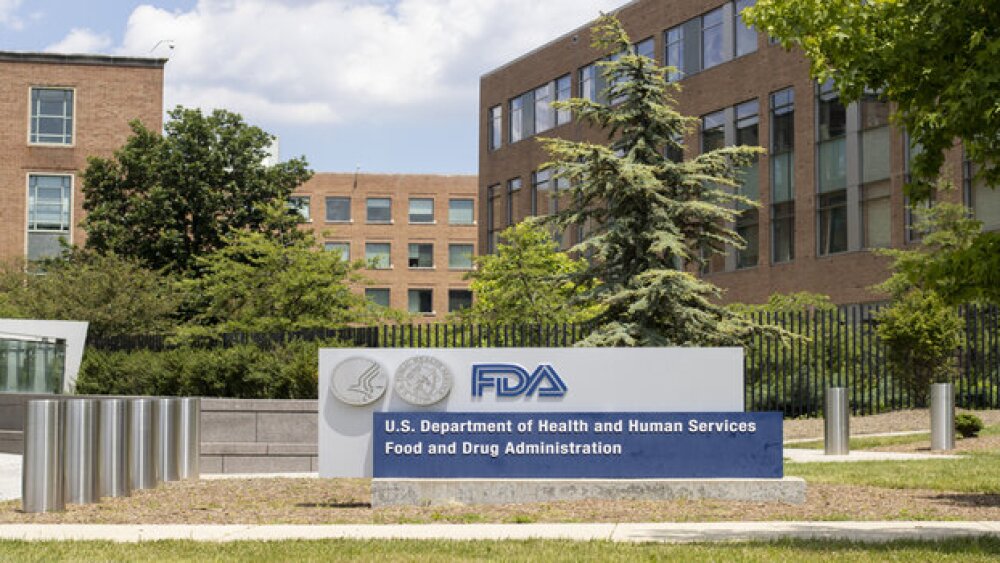BeiGene’s Brukinsa becomes the first BTK inhibitor approved for follicular lymphoma, the most common type of low-grade non-Hodgkin lymphoma.
Pictured: FDA sign outside its office in Maryland/iStock, hapabapa
The FDA on Thursday granted accelerated approval to BeiGene’s BTK inhibitor Brukinsa (zanubrutinib), when used in combination with Genentech’s Gazyva (obinutuzumab), to treat patients with relapsed or refractory follicular lymphoma who have undergone at least two lines of systemic therapy.
The regulatory win makes Brukinsa the first and only BTK inhibitor authorized for use in follicular lymphoma (FL) and the first therapy in this drug class to secure five oncology indications, according to BeiGene’s announcement.
Brukinsa “is the only BTK inhibitor to date that shows efficacy with this type of malignancy and now has the broadest label,” BeiGene CMO Mehrdad Mobasher said in a statement, adding that Thursday’s approval is a “testament to Brukinsa’s differentiate clinical profile.”
The FDA’s decision was backed by data from the Phase II ROSEWOOD trial, a randomized and open-label study that demonstrated a 69% overall response rate (ORR) in patients treated with Brukinsa plus Gazyva. Those who received Gazyva alone had an ORR of 46%. The treatment difference was statistically significant in favor of Brukinsa, with a p-value of 0.0012, according to BeiGene.
At 18 months, ROSEWOOD documented a “landmark” duration of response rate of 69% in the combination treatment arm.
In terms of safety, the trial found that Brukinsa plus Gazyva was overall well-tolerated, with a safety profile consistent with what had been previously established for both treatments. Of the patients who received the combination regimen, 35% developed serious adverse events and 17% discontinued Brukinsa permanently due to toxicities.
Brukinsa’s FL approval was given under the FDA’s accelerated pathway, which requires BeiGene to run a confirmatory trial to verify Brukinsa’s clinical benefits in this indication. The biotech is conducting the Phase III MAHOGANY trial, which is currently underway.
Brukinsa is a small molecule blocker of the Bruton’s tyrosine kinase protein, which is involved in signaling pathways that culminate in B-cell proliferation, trafficking, adhesion and movement. This mechanism of action allows Brukinsa to inhibit and suppress the proliferation of malignant B-cells and limit tumor growth.
The drug was first approved in November 2019 for the treatment of mantle cell lymphoma in adult patients who had undergone at least one previous line of therapy. Brukinsa has since picked up other indications including relapsed or refractory marginal zone lymphoma, marginal zone lymphoma, chronic lymphocytic lymphoma and the blood cell cancer Waldenström’s macroglobulinemia.
BeiGene’s regulatory victory on Thursday comes nearly a year after AbbVie and J&J voluntarily withdrew two accelerated approvals for Imbruvica (ibrutinib), one of Brukinsa’s primary competitors. Following disappointing data from Phase III confirmatory trials, the pharma partners pulled Imbruvica’s indications in mantle cell lymphoma and marginal zone lymphoma.
Tristan Manalac is an independent science writer based in Metro Manila, Philippines. Reach out to him on LinkedIn or email him at tristan@tristanmanalac.com or tristan.manalac@biospace.com.






